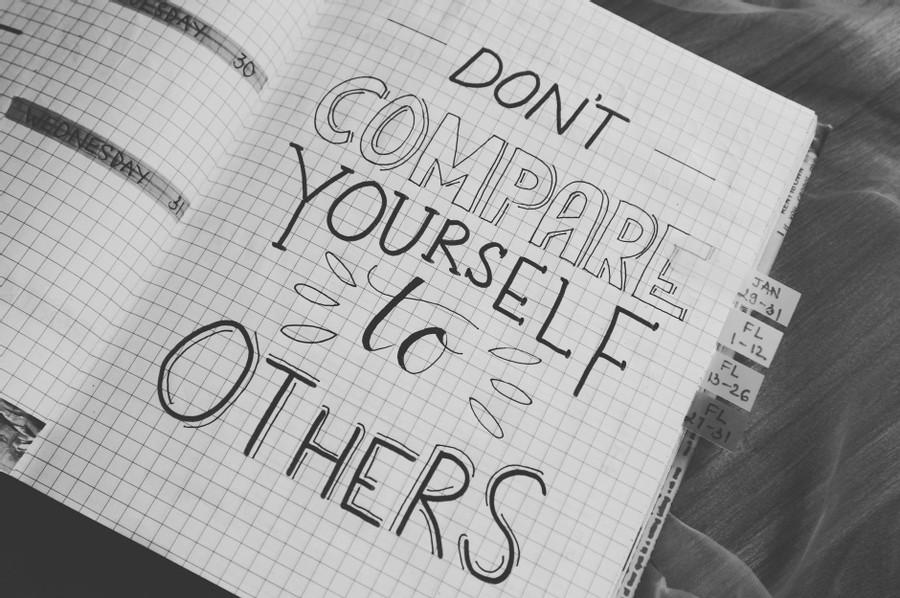Learn more about personaldevelopment with this collection
How to prioritize and simplify your life
The importance of rest and relaxation
The benefits of slowing down
Social Comparison Theory
Psychology Today describes social comparison theory as, "... determining our own social and personal self-worth based on how we stack up against others we perceive as somehow faring better or worse."
156
1.37K reads
MORE IDEAS ON THIS
Impact on Emotional Health
When we glorify busyness we are likely to overextend ourselves with varied obligations, appointments, commitments, and responsibilities.
We end up taking on too much and can easily become flooded with negative emotion and even feeling isolated from others.
148
1.01K reads
Examine the Source of Your Self-Worth
When we are excessively busy and glorify the idea of busyness, it is common to gain our sense of self-worth through tasks, performance, accolades, and recognition from others.
In exploring your core values you may find that spending time with family offers you a more meaningful sense of ...
171
737 reads
Impact on Emotional Health
Shuttling from one appointment to the next and having no time to spare in our schedule causes us to get creative in how we are feeding ourselves, moving our bodies, and resting.
We end up making poor choices in all of these areas because we either don't have time to make careful choices or ou...
156
839 reads
Benefits of Making Change
Creating change in the area of busyness can offer us improved physical health, greater peace and joy, and better, more connected, relationships. Having time for others and ourselves can offer us that sense of safety, value, and connection we were once looking for by being so busy.
129
721 reads
Busy vs. Productive
Merriam-Webster defines the word productive as, "Yielding results, benefits or profits." Essentially, it means that we have something to show for our hard work.
Being busy has to do with an amount of time, where productivity has more to do with our use of...
196
1.1K reads
Impact on Relationships
Demanding, overextended schedules leave no time for meaningful connection. In our efforts to preserve relationships, we may send a quick text or attempt to make plans.
Over time, especially when attempts to get together are disrupted by last-minute changes, people can feel deva...
161
777 reads
What Others Think of Us
As a human being interacting with other human beings, we learn that how we show up in the world seems to matter.
If we have learned through our own social experiences that certain patterns of behavior, such as being extraordinarily busy and constantly on-the-go lead to being successful,...
137
1.06K reads
Challenge Your Narrative
Our narrative is what we tend to tell ourselves about who we are, our worth, our abilities, and our purpose, among other things.
Allow yourself the opportunity to challenge your old narrative that says you are not enough if you're doing all things all the time
154
683 reads
Set Boundaries
As you learn to say no to excessive projects, tasks, and appointments, you may fear how people respond to you, especially if they are not used to hearing no from you.
Remember why you are taking better control over your time and keep the big picture in min...
164
714 reads
Related collections
More like this
9. Constant comparison with others
The most significant behavior exhibited by intelligent people with low self-esteem is the constant comparison with others. They are often in a perpetual state of evaluating their worth based on other people’s achievements, appearances or successes.
This comparison isn’t about competition or...
The Social Cognitive Theory
The Social Cognitive Theory states that a mix of personal and environmental determinants influence our behavior, our beliefs and the outcomes we expect if we do act as planned.
Social Comparisons
A social comparison happens when we are measuring ourselves by the success or the failures of others. We all use social comparisons to motivate ourselves.
- Upward comparisons make us dissatisfied, as we line up ourselves with someone better than us.
Read & Learn
20x Faster
without
deepstash
with
deepstash
with
deepstash
Access to 200,000+ ideas
—
Access to the mobile app
—
Unlimited idea saving & library
—
—
Unlimited history
—
—
Unlimited listening to ideas
—
—
Downloading & offline access
—
—
Personalized recommendations
—
—
Supercharge your mind with one idea per day
Enter your email and spend 1 minute every day to learn something new.
I agree to receive email updates


